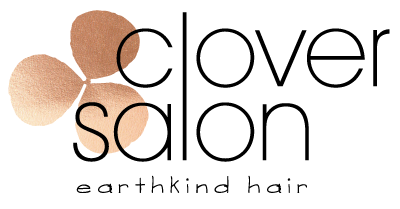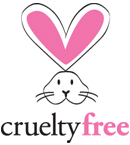environmental audit
SOLID WASTE & RECYCLING ASSESSMENT
Progress report prepared by Green Workplace – July 2019
Introduction:
Clover Earthkind Hair Salon is located at 140-475 W Georgia St, Vancouver, BC. The Salon has a staff of 10 on average and serves approximately 6,000 customers per year. The Salon is committed to environmental impact reduction including achieving zero waste. Green Workplace performed the first waste audit and report for the Salon in 2010, with follow-up audits and reports in 2011, 2013, 2017 and 2019. The purpose of the waste audit was to categorize and quantify the components of the waste and recyclables produced by the Salon. This report is divided into the following sections:
-Methodology
-Key Findings
-Solid Waste Diversion Rate
-Description and Findings by Category of Waste
-Greenhouse Gas Savings
-Green Initiatives and Green Office Champions
Methodology
Clover Earthkind categorized and set aside their waste and recycling prior to each visit. The duration over which each category of waste was stockpiled was variable, and was recorded for each category. Green Workplace then weighed the materials in each category. The weigh data was extrapolated to create an annual estimate of garbage and diverted or recycled waste materials.
Key Findings
~Clover Earthkind successfully recycles and/or diverts more than 99% of its solid waste stream. By comparison, the diversion rate in 2009 was 77%. The diversion has increased every year since 2009. The average diversion rate in BC is only 30% per person per year.
~In the current reporting period (April 2017 to June 2019, or 784 days), Clover Earthkind generated 0.31 kg (310 grams) of garbage (landfilled) per year. By contrast, BC residents generate an average of 586 kg of garbage per person per year.
~The 0.05% of Clover’s waste that is landfilled consists entirely of garbage that is not readily recyclable (e.g. soft foam, silica packets, Band-Aids). In 2009, Green Workplace suggested that a diversion rate of 80% would be feasible by 2010. Clover Earthkind has exceeded this target since 2013, with greater than 99% diversion since 2013.
~Clover Earthkind has researched a recycling solution for three common work-related garbage items that are usually sent to landfill. These include hair clippings, foil colour tubes and aluminum foil from hair colouring. Other uncommon recyclable items diverted include soft plastic film, plastic bags, metals, fabrics and electronics.
~The reduction of waste generated since 2013 is the result of more aggressive sorting collection of special uncommon recyclables such as soft plastics and non-blue-box plastics #3, #6 and #7.
~Recycling resulted in a GHG savings of 3.0 tonnes CO2 equivalent per year over the last 2 years.
~Given the excellent waste reduction practices in place at Clover Earthkind as well as improvements realized in the last two years, Clover Earthkind continues to qualify for Green Workplace’s Green Office Champions Certification.
Clover Earthkind’s Solid Waste Diversion Rate:
Diversion Rate Methodology
The diversion rate in this survey period was 99.95%, compared to 99.20% in 2017, 99% in 2013, 98% in 2011, 85% in 2010 and 77% in 2009.
Weight of Garbage
The mass of recyclables has fluctuated between 236 kg to 553 kg per 1-year or 2-year survey period while the mass of garbage has remained near zero since 2013.
How Much Waste is Being Generated and Where Does it all Go?
Garbage (o.o5% of total)
Clover Earthkind produced 0.3 kilograms of garbage per year, compared to 2.3 kg in 2017, 1.3 kg in 2013, 13.0 kg in 2011, 83.0 kg in 2010 and 132.0 kg per year in 2009. By comparison, the average BC person generates 586 kg of garbage per year. The salon has 9 employees and serves approximately 6,000 customers per year. This equates to just 0.5 grams of garbage generated per customer per visit. Green Workplace inspected the garbage and found no recyclables or compostables in the garbage. Also, the contamination in the recyclable items (i.e. garbage in recyclables) was virtually nil. This indicates that waste sorting is very effective. Non-recyclable items put into garbage include foam, bandaids, chewing gum and multi-material tea-sachets. Clover Salon has shifted to making loose-leaf tea available to staff to reduce the teabag packaging waste. The majority of the garbage (406 grams) consisted of used chewing gum which was kept separate in order to quantify the amount.
Mixed Paper (33% of total)
Mixed paper is recycled in the building blue box program, keeping an estimated 214 kilograms of paper out of the landfill per year over the last 2 years. Types of paper collected included packing paper, till receipts, coffee cups and sleeves, and food tray liners. The segregated paper sampled (1 weeks’ worth) was an unusually large amount for the business compared to recent years, the actual mass of paper generated per year may be lower than reported in this survey period.
Organics (21% of total)
Clover Earthkind composted approximately 141 kilograms of organics waste per year over the last 2 years, which would otherwise be sent to landfill. As a result of staff education and staff engagement the business and employees compost as many items as possible. Some of the items composted include food waste, compostable containers, hair, plants and tea bags. Compostable organics are collected and processed by Growing City.
Recyclable Containers (11% of total)
(Plastics: 1,2,4,5, glass and aluminum)
Clover Earthkind recycled 73 kilograms of recyclable plastics and mixed containers per year over the last 2 years. Recyclable containers are placed in clearly marked blue bins by salon staff and clientele and are then recycled. Certain hair products can be refilled in bulk, however most hair product companies have discontinued larger gallon containers for this purpose for salons. Common recyclable containers found include shampoo bottles, food containers, aluminum cans and coffee cup lids. Milk for customers provided in litre-plus sized containers, re-usable coffee cups provided, no plastic portions.
Aluminum Foil & Colour Tubes (14% of total)
Aluminum foil (for hair dye) (13% of total waste) and aluminum colour tubes (2% of total waste) are sold to a local metal salvage company diverting 95 kilograms of aluminum per year over the last 2 years from landfill. Manufacturing new aluminum is very resource intensive, and Clover Earthkind saved a combined 1.42 tonnes (1,420 kg) of GHG in the last year by recycling aluminum foil and colour tubes, accounting for almost half of the total GHG savings in the last year which was 3.02 tonnes (3,021 kg)
Cardboard (5% of total)
Clover Earthkind recycles an estimated 30 kilograms of cardboard per year over the last 2 years. Cardboard amounts vary considerably from week to week, making annual totals highly variable and challenging to compare from year to year. Because the 1-week sample size was unusually large, the amount of cardboard for this survey period was set equal to that reported in the 2017 Progress Report, where sample size was more representative. Recycling cardboard saves significant amount of GHG’s by offsetting the need for new paper fibre production. Recycling this much cardboard saves 118 kg of GHGs per year.
Hair (6% of total)
An uncommon recyclable, hair clippings comprise an estimated 42 kilograms/year of diverted waste which is composted. The annual totals of hair have changed little from year to year. Total clients and employees has remained relatively constant over the years which would account for the consistency. Previously, the salon has donated hair clippings to local individuals who have used it as a backyard wildlife deterrent and donated it for oil clean up, however these organizations are no longer collecting hair for those purposes. Hair is collected as part of the compost service provided by Growing City.
Non-Commonly Recyclable Plastics (8% of total) includes plastics 3,6,7 & non-numbered plastics
8% (56 kg/year) of Clover Earthkind’s solid waste stream was comprised of non-commonly recyclable plastics, which are recycled at Surrey Recycling. Clover staff do an excellent job of making the extra effort to separate and recycle the plastic lids from paper coffee cups and then recycling the paper cups in the paper recycling. Other items found in the recyclable bins include plastic bags, candy wrappers, latex gloves, drink straws and styrofoam.
Fabrics and Electronics (1% of total)
Work related fabric waste, such as capes and smocks, was previously brought to H & M’s fabric recycling program, however this program no longer recycles fabrics. The business is looking into alternative fabric recycling options. Electronics are collected and recycled.
Aerosol containers (<1% of total)
5.2 kg total aerosol containers were stockpiled for 11 years while waiting for a sufficient quantity to make recycling worthwhile, these containers will be recycled later this year. That amount of aerosol containers is equivalent to 0.5 kg/year of aerosol containers generated and recycled. This is the first year that aerosol containers have been included in the waste audit.
Random metals (<1% of total)
2.7 kg of random metals were stockpiled since the last audit pending recycling. Items include decorative items, tins, machine parts and coat hangers
Additional Recycling
Other items collected for recycling included approximately 1-year worth of batteries (1.0 kg), 1-year worth of print cartridges (200 grams) and 1-year worth of used metal razor sharps in a sharps container (400 grams including the container). These amounts were not included in the annual recycling summary in order to better compare similar categories between this audit and last audit, but can be tracked in future audits for comparison. For ballpoint pens, the ink was removed and the plastic pen was recycled.
Greenhouse Gases Savings
By committing to their rigorous diversion and recycling program, Clover Earthkind saved an estimated 3.0 tonnes (3,021 kg) of Greenhouse gas per year over the last 2 years by recycling and composting materials instead of landfilling, which is a significant achievement. This is equivalent to savings from driving a regular car for 17,300 km.
Clover Earthkind’s Other Green Initiatives Green Workplace has verified the following green initiatives have been implemented at Clover Salon:
Salon Construction
~low VOC (volatile organic compounds) paints
~environmentally compatible flooring (part recycled/allergy free)
~compact fluorescent lighting (all but 4 bulbs in the entire salon)
~used sinks (5)/doors for esthetics room (purchased from restore)
~recycled aluminum chandeliers
~used/renewed furnishings ~ all reception furniture (desk, couch, 2 chairs) all 8 stylist chairs
~recycled glass tiles (placed with non-toxic adhesive)
~reclaimed wood stations and shelves (stained with locally made/non-toxic varnish)
~energy efficient appliances
Operations
~recycled facial tissue
~reuse of any small containers as sample containers to avoid purchase of non-recyclable plastic sachets
~wild-crafted or organic hair care (shampoos etc.) and other retail products made by companies with strong environmental initiatives
~vegetable-based/ammonia-free permanent/chemically-diminished colours
~natural/organic and chemically-diminished makeup, skin care and nail polish
~100% animal cruelty-free products
~100% recycled fibre (also biodegradable) retail bags
~cards and gift certificates printed on 100% post-consumer recycled paper with vegetable inks
~biodegradable/locally made non-toxic cleaners (dish soap, laundry soap, glass cleaner etc.)
~biodegradable garbage bags
~refill program – clients can return old bottles of product for a discounted refill. No new plastic needs to be used or made
~advertising through sustainable local magazines
~BC’s first Bullfrog powered salon (as of August 2009)
~organics collection (compost)
~staff education on reducing water use where possible
~soft plastic and cellophane recycling
~small electronics recycling
~bulb / battery / ink cartridge recycling
~all lights and tools plugged into powerbars. This leaves nothing wasting energy overnight.
~a $2 fine to charity for any staff for bringing in any non-recyclable/compostable take-out containers (styrofoam etc.) to reduce such things being brought into the shop (as of 2011).







